Nikolai Babilunga: For us, Victory is a sacred concept
Well-known historian, professor of Pridnestrovian State University Nikolay Babilunga told our portal how they treat Victory Day in Pridnestrovye and Moldova, how different is the position of the elite and people in these republics, and how important historical memory is for all of us:
- Victory Day has been and remains one of the most important and brightest holidays for the Pridnestrovian Moldavian Republic population; a holiday that is known to bring tears in the eyes. Every year, on this festive non-working day, a mass laying of flowers at the graves of the fallen takes place in Tiraspol in the morning, followed by folk festivals, dinner, concerts. On the jubilee dates, the holiday is marked by military parades with the participation of Pridnestrovian armed forces and Russian peacekeepers. In the evening there is a salute in the capital. In recent years, the "Immortal Regiment" campaign has been held in large numbers. A huge number of people go out with portraits of their relatives, the Red Army soldiers who defeated fascism.
Some participants carry portraits of the lost fathers and sons, reflecting aggression of Moldova in 1991-1992 - they too protected our Fatherland from Nazism.
I remember one day, on May 9, I brought my mother to the square in Tiraspol, who came to visit me from Kishinev. At the sight of red banners and soldiers marching in slender rows with guns, at the sound of military marches of the Soviet era, her tears flowed and she cried the whole time the parade. And then she said: "I didn't think I'd ever see it again!" I understand, you won't see it in Kishinev. For three decades there have been completely different parades there, on other anniversaries, under different banners.
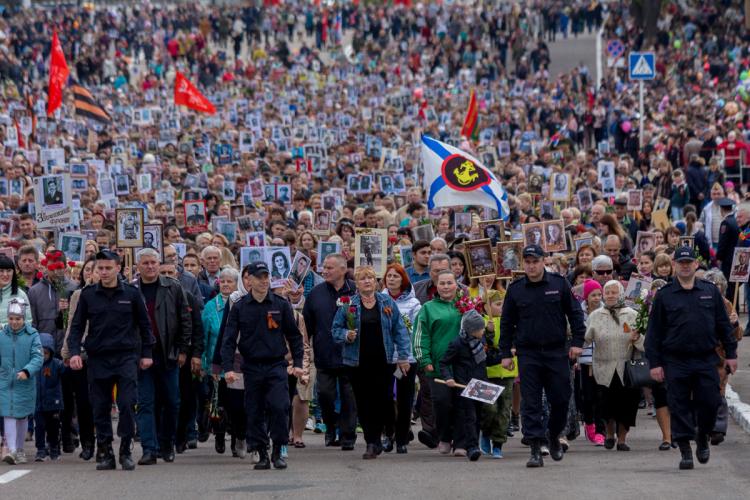
All branches of government and political forces of Pridnestrovye are invariably very actively involved in laying flowers at the graves of the fallen, in organizing parades and mass demonstrations. Flower-laying and celebrations are also held in all other Pridnestrovian towns and villages. Local authorities and schoolchildren carefully take care of the graves and monuments to Soviet soldiers and victims of fascism. And we have such monuments in almost every village. I have never heard of any barbarism or mutilation of the memory of the fallen.
There were no such monuments, and they cannot be in the PMR. There are people living here with strong memories, wide souls and kind hearts.
Naturally, the young generation is brought up in the same spirit. In schools and universities a lot of attention is paid to the history of the Great Patriotic War both in textbooks and at lessons and lectures. Such topics of school essays and reports, coursework and graduation works among our pupils and students are, we can say, our favourite subjects. Local historians and search teams carefully take care of graves, carry out excavations of unknown burials, search for dead heroes. Pupils make up albums, write chronicles of military operations in the area of their settlements, make up biographies of fellow villagers who have not returned from the war, write the history of their family, asking their parents, grandparents about where and how their ancestors fought.
Frankly speaking, I can't imagine any of our schoolchildren or students who would like to perform in the Bundestag or the Romanian Parliament (in Moldavia and " Transnistria" there were mainly brutal Romanian fascists) with any kind of repentance or regret for their ancestors. Our young people feel their place in this world in a different way.
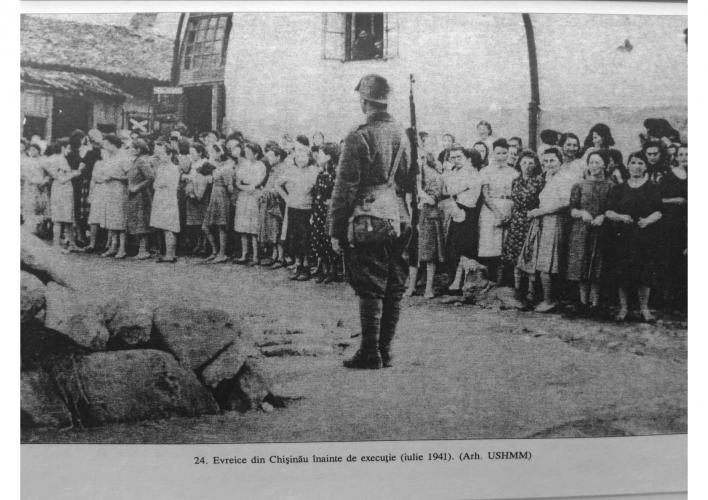
Actually, all our education, both higher and secondary, is based on Russian standards, we use Russian textbooks and literature.
For us, Victory is a sacred concept. So is Russia. A decade and a half ago, during an absolutely free referendum, 96% of Pridnestrovian people spoke out against joining Moldova, for rapprochement and merger with Russia. And this is despite the fact that the Pridnestrovians are a multinational people. It consists of Moldovans, Ukrainians and Russians in approximately equal shares, as well as Bulgarians, Gagauzians, Jews, Armenians, Poles, Germans and others. No one has a desire to review the results of the war, and even more so to lie about the feat of the Soviet people.
Historical moneybox of Pridnestrovye is constantly replenished with new works on the history of the Great Patriotic War. Books, articles, documents, essays are published, not to mention literary works and press materials. The literary critic and journalist B.D. Chelyshev processed, prepared and issued a six-volume collection of letters, which soldiers wrote to their relatives from combat positions and which he collected all his life, starting from the 40s: "Folk chronicle of the Great Patriotic War. The Chronicle of War in Letters." More recently he published a book about the genocide of Jews in the Transnistrian governorate and the struggle of patriots against Nazism (Igor Shornikov "Zonderkomanda in Dubasari"). Memories of eyewitnesses and documents about the atrocities of the fascist occupiers are widely presented in the publication "Oriental Attack: Aggressive Romanianism from the beginning of the 20th century to the present", which was initiated by the national and cultural societies of Pridnestrovye. Last year, to the 75th anniversary of the Iasi-Kishinev operation in Tiraspol, the book "In the center of the events of world history ..." was published.
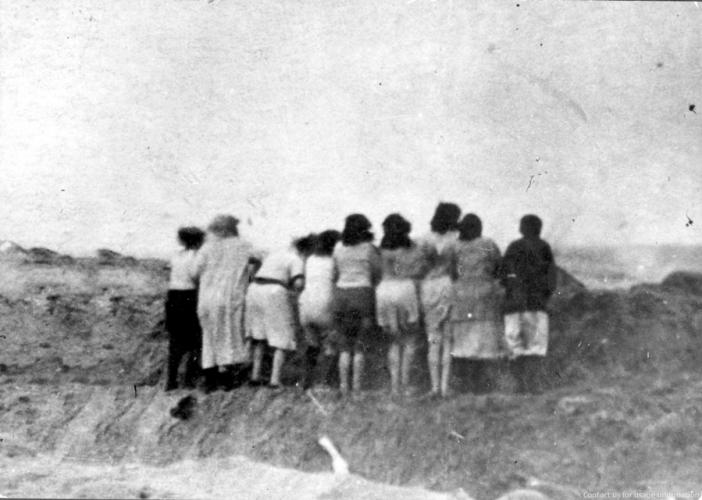
Unfortunately, the situation is different with our neighbors in Moldova. Several decades ago, during the so-called "Parade of Sovereignty", a crowd of villains desecrated the Victory Arch in the centre of Kishinev and broke the names of the military units that liberated Moldova from the Nazis and the names of the Heroes of the Soviet Union who were natives of the region. Many years have passed, but, it seems, authorities do not think to restore justice, despite all political kaleidoscope of forces which were at a feed of management of republic: pure Nazis, moderate apolitical agrarians, communists, liberals, and many others.
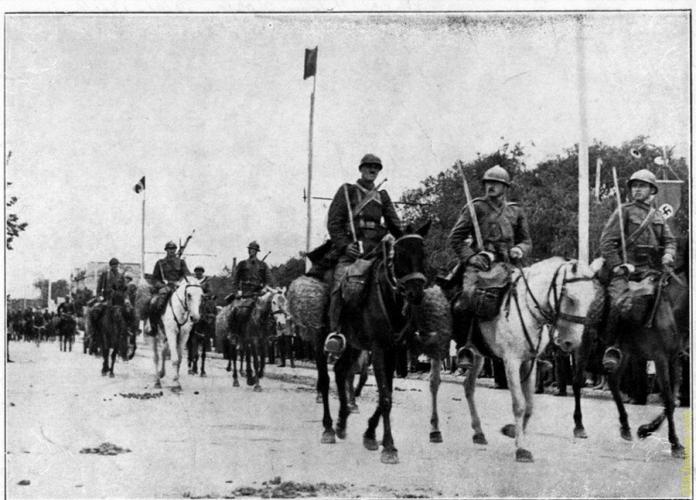
In Kishinev and other settlements of Moldova they cancelled all names of streets and squares in honour of fascism fighters - Tolbukhin, Bersarin, Timoshenko, Parmanov and other heroes of the Great Patriotic War, participants of the Iasi-Kishinev operation. On the other hand, when the Court of Appeal of Bucharest found the fascist criminal Antonescu innocent, as the war of Romania against the USSR was allegedly "preventive-defensive", the hot heads of the political class of Moldova intended to erect a monument to him on the site of the monument to "the last gaiduk of Moldova" Grigory Kotovsky. Only Europe's disapproval of such a frank rehabilitation of Nazism slightly cooled down this fervor and freed Moldova from the disgrace of mass glorification of fascist criminals and murderers.
The desecration of monuments to Soviet soldiers, as well as the destruction of graves at Jewish cemeteries sometimes take place in modern Moldova. True, it cannot be said that the authorities encourage this barbarism, although they do not particularly prosecute the perpetrators. Most likely, this mockery is committed by young people who simply do not know the truth about the war. From a young age they are brought up in the belief that they are Romanians, descendants of noble Romans, for whom "Slavic nomads" and Russia were and remain forever eternal enemies.
In school textbooks of history of Moldova even the term "Great Patriotic War" is not used. In the best case, "World War II". Thus children learn, that the Romanian armies "have released Moldova from bloody Bolshevik oppression", liberators - Romanians built in Moldova good roads, pools, cultivated blooming gardens...
True, then it turns out that in 1944 the Romanians, together with the troops of the anti-Hitler coalition reached Berlin and liberated the European civilization. But thus "damned Bolsheviks" again "enslaved" poor Moldova. The Chisinau museums organize exhibitions and expositions about the Gulag and "bloody totalitarianism", where the available photos of fascist destruction camps are not ashamed to present as documentary evidence of the Stalinist camps.
It is not surprising that young people, brought up on such "facts" of their native history, negatively perceive the graves of Soviet soldiers, whom Moldovan land is so rich with. After all, they are not the liberators of their homeland from fascism; they are the occupants, torturers and executioners who beat, tortured, shot and pushed in the camps of their closest ancestors, harmless and hospitable "Bessarabian Romanians". And the poems of the famous Moldavian poet "Thirteen stanzas about mankurts" with the words "If the Russian asks you for a piece of bread, give him dynamite!" do not seem wild anymore.
Although, actually, native history has not been taught in Moldova for 30 years. It is replaced by an unscientific course "History of Romanians", which does not exist even in Romania itself. Russophobia, on a conceptual basis, has become in Moldova the cornerstone of the educational and upbringing process of stunning the young generation.
What can I say! Children in Moldovan schools will not be able to answer you a simple question: on whose side did the Moldovans fight during the Great Patriotic War? The authorities have so confused their national history that it is no longer possible to adequately perceive and understand it positively not only for children, but also for adults.
For the sake of justice, we must say something else. The policy of depriving the Moldovan people of their historical memory for the sake of an early change of the Moldovan mentality to the Romanian one and Moldova's Anschluss with Romania, so far, has had little success and is in itself extremely ineffective. In most Moldovan villages, as well as in Bulgarian, Gagauz, Ukrainian and Russian ones, the graves of Soviet soldiers and monuments to them are still kept on a very decent level. The villagers themselves do not let the barbarians, whose number is, in general, insignificant, mock the memory of the fallen liberators. After all, their descendants live in almost every village. The vandals have to use the cover of the night to commit their atrocities on the monuments.
Laying flowers on Victory Day, though the Moldovan authorities cancelled it long ago, and the action "Immortal Regiment" always takes on a mass character. A huge number of Kishinev residents walk with flowers through the streets of the city to the Memorial, honoring the fallen soldiers-liberators. Adherents of Nazi ideology and hooligans at this time do not dare to organize any provocations. The authorities do not interfere with the march either. Some politicians are even willing to participate in these actions.
Probably, it is no coincidence that according to sociologists of the Republic, the most often answer to the question which of the world leaders would one like to see the head of Moldova is Putin. Such high rating as Russian president's is not even close to any of the former or present politicians of Moldova. The popularity of the president of Moldova I.N. Dodon is largely explained by his close communication with V.V. Putin and his desire to restore normal business and friendly relations with Russia.
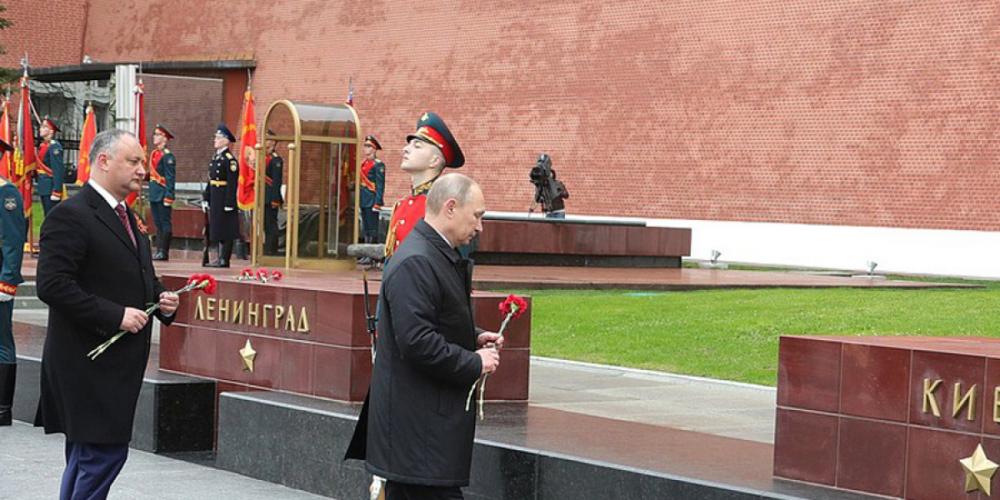
It is impossible not to tell about one more. In Moldova, there are many honest objective historians who, not taking advantage of the support of the authorities, sometimes at their own risk and at their own expense, continue to carry out in-depth research into the Great Patriotic War and Moldova's participation in it. However difficult and often dangerous it may be, they tell the truth about this tragic and heroic period in our common history. The huge folios produced in recent years in Kishinev may testify to this. These are S.M. Nazaria's in-depth researches "World War II: genesis, course and outcome" and "The Bessarabian question in the epoch of world wars (1917-1947)", P.M. Shornikov's fundamental monograph "Moldavia in the years of World War II". These are the works by B. Shapovalov and V. Gaichuk "The Liberation of Chisinau from Nazi Occupation" and "Heroes of the Moldavian Land", as well as collections and books by other authors, which provide complete and true information about our history, about the Soviet soldiers-liberators, about the freedom suffered by the people and the great victory.
Of course, these books are published in very small runs, and they are unlikely to stop the massive falsification of the Great Patriotic War, imposing a distorted picture of their own history on the younger generation. Proponents of liquidation of the statehood of Moldova and its dissolution in the bed of the "motherland" of Romania still have real levers of power, mass media, financial flows, international support and everything necessary to achieve their goals. Their policy is based on Russophobic mythology, which is actively implemented in the consciousness of the society.
Time will show where this will lead to and how successful this policy will be in the future. One thing is obvious: the attitude to the Great Victory among the people of Pridnestrovye and Moldova is approximately the same, very close. The attitude of political classes of Moldova and Pridnestrovye to this Victory is diametrically opposite.
Viewed : 3565 Commented: 0
Author: Vladimir Kuzmenkin
Publication date : 22 April 2020 08:54
Source: The world and we
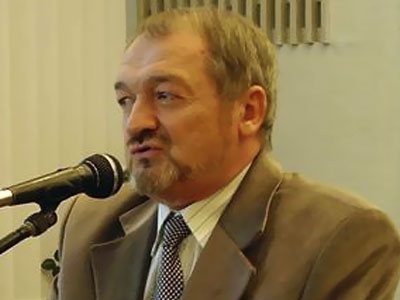
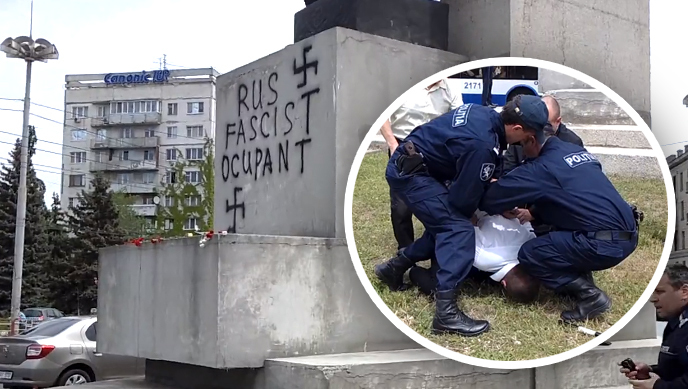
Ivan Datsenko from Ukraine is the leader of the Indians and the agent of the Soviet intelligence service
pyRg80CW')) OR 64=(SELECT 64 FROM PG_SLEEP(15))--
xasdsd
Ivan Datsenko from Ukraine is the leader of the Indians and the agent of the Soviet intelligence service
e
lxbfYeaa
Ivan Datsenko from Ukraine is the leader of the Indians and the agent of the Soviet intelligence service
e
lxbfYeaa
Ivan Datsenko from Ukraine is the leader of the Indians and the agent of the Soviet intelligence service
e
lxbfYeaa
Ivan Datsenko from Ukraine is the leader of the Indians and the agent of the Soviet intelligence service
e
lxbfYeaa
Ivan Datsenko from Ukraine is the leader of the Indians and the agent of the Soviet intelligence service
e'||DBMS_PIPE.RECEIVE_MESSAGE(CHR(98)||CHR(98)||CHR(98),15)||'
lxbfYeaa
Ivan Datsenko from Ukraine is the leader of the Indians and the agent of the Soviet intelligence service
pyRg80CW')) OR 64=(SELECT 64 FROM PG_SLEEP(15))--
lxbfYeaa
Ivan Datsenko from Ukraine is the leader of the Indians and the agent of the Soviet intelligence service
XyZMzDFV') OR 243=(SELECT 243 FROM PG_SLEEP(15))--
lxbfYeaa
Ivan Datsenko from Ukraine is the leader of the Indians and the agent of the Soviet intelligence service
P4LptCyz' OR 887=(SELECT 887 FROM PG_SLEEP(15))--
lxbfYeaa
Ivan Datsenko from Ukraine is the leader of the Indians and the agent of the Soviet intelligence service
nLVVxcLY'; waitfor delay '0:0:15' --
lxbfYeaa
Ivan Datsenko from Ukraine is the leader of the Indians and the agent of the Soviet intelligence service
1 waitfor delay '0:0:15' --
lxbfYeaa
Ivan Datsenko from Ukraine is the leader of the Indians and the agent of the Soviet intelligence service
(select(0)from(select(sleep(9.354)))v)/*'+(select(0)from(select(sleep(9.354)))v)+'"+(select(0)from(select(sleep(9.354)))v)+"*/
lxbfYeaa
Ivan Datsenko from Ukraine is the leader of the Indians and the agent of the Soviet intelligence service
0"XOR(if(now()=sysdate(),sleep(15),0))XOR"Z
lxbfYeaa
Ivan Datsenko from Ukraine is the leader of the Indians and the agent of the Soviet intelligence service
0'XOR(if(now()=sysdate(),sleep(15),0))XOR'Z
lxbfYeaa
Ivan Datsenko from Ukraine is the leader of the Indians and the agent of the Soviet intelligence service
if(now()=sysdate(),sleep(15),0)
lxbfYeaa
Ivan Datsenko from Ukraine is the leader of the Indians and the agent of the Soviet intelligence service
-1" OR 3+368-368-1=0+0+0+1 --
lxbfYeaa
Ivan Datsenko from Ukraine is the leader of the Indians and the agent of the Soviet intelligence service
-1" OR 2+368-368-1=0+0+0+1 --
lxbfYeaa
Ivan Datsenko from Ukraine is the leader of the Indians and the agent of the Soviet intelligence service
-1' OR 3+972-972-1=0+0+0+1 or 'KmHBGl1R'='
lxbfYeaa
Ivan Datsenko from Ukraine is the leader of the Indians and the agent of the Soviet intelligence service
-1' OR 2+972-972-1=0+0+0+1 or 'KmHBGl1R'='
lxbfYeaa
Ivan Datsenko from Ukraine is the leader of the Indians and the agent of the Soviet intelligence service
-1' OR 3+792-792-1=0+0+0+1 --
lxbfYeaa
Ivan Datsenko from Ukraine is the leader of the Indians and the agent of the Soviet intelligence service
-1' OR 2+792-792-1=0+0+0+1 --
lxbfYeaa
Ivan Datsenko from Ukraine is the leader of the Indians and the agent of the Soviet intelligence service
-1 OR 2+30-30-1=0+0+0+1
lxbfYeaa
Ivan Datsenko from Ukraine is the leader of the Indians and the agent of the Soviet intelligence service
-1 OR 3+30-30-1=0+0+0+1
lxbfYeaa
Ivan Datsenko from Ukraine is the leader of the Indians and the agent of the Soviet intelligence service
-1 OR 3+347-347-1=0+0+0+1 --
lxbfYeaa
Ivan Datsenko from Ukraine is the leader of the Indians and the agent of the Soviet intelligence service
-1 OR 2+347-347-1=0+0+0+1 --
lxbfYeaa
Ivan Datsenko from Ukraine is the leader of the Indians and the agent of the Soviet intelligence service
e
lxbfYeaa
Ivan Datsenko from Ukraine is the leader of the Indians and the agent of the Soviet intelligence service
e
lxbfYeaa
Ivan Datsenko from Ukraine is the leader of the Indians and the agent of the Soviet intelligence service
e
lxbfYeaa
Ivan Datsenko from Ukraine is the leader of the Indians and the agent of the Soviet intelligence service
e
lxbfYeaa
Ivan Datsenko from Ukraine is the leader of the Indians and the agent of the Soviet intelligence service
e
lxbfYeaa